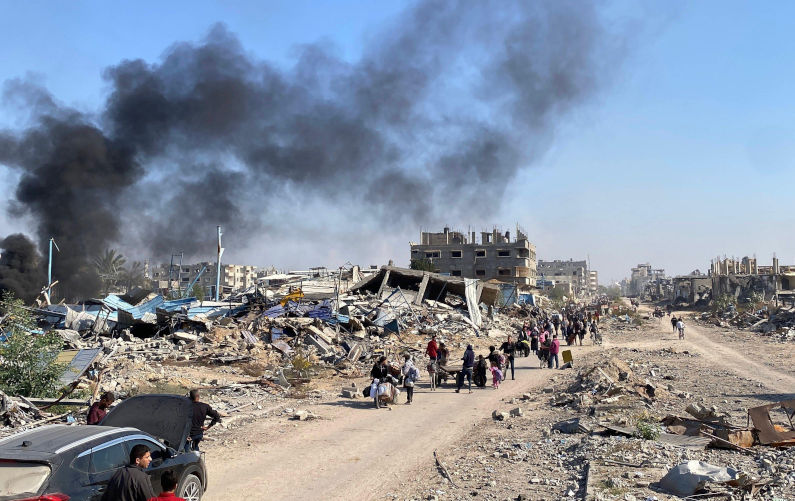They destroyed what was inside us: The children of Gaza
December 11, 2024
From the day the war began, 15-year old Ghazal’s life was irreversibly changed. “They destroyed what was inside us,” she said. Her story is a window into the larger tragedy of how war has devastated children, especially those with disabilities.
The unimaginable cost of war
Ghazal, a 15-year-old girl with cerebral palsy, has lost her home, memories and essential medical equipment in the ongoing conflict in Gaza. Her story is a window into the larger tragedy of how war has devastated children, especially those with disabilities.
From the day the war began, Ghazal’s life was irreversibly changed. “They destroyed what was inside us,” she said, describing how the bombing not only demolished her house but also took away her wheelchair and prosthetic devices - items essential for her survival and dignity.
Children bear the brunt of the crisis
The Human Rights Watch report, They Destroyed What Was Inside Us, documents the staggering toll on Gaza’s children. Recent figures paint an alarming picture:
- Over 17,000 children have been killed in Gaza since October 2023, according to Gaza’s Ministry of Health.
- Humanitarian groups report that at least ten children lose a limb every day, often due to explosive weapons.
- More than 100,000 children have been displaced, with many separated from their families or caregivers.
For children with disabilities, the situation is even more dire. Mobility aids like prosthetics and wheelchairs have been destroyed en masse. Hospitals, already under siege, lack the resources to replace them or provide urgent care.
A crisis of rights and accountability
Under international law, including the UN Convention on the Rights of the Child and the UN Convention on the Rights of Persons with Disabilities, children and people with disabilities are entitled to protection during armed conflicts. Yet the realities in Gaza demonstrate how these principles are being openly ignored.
Human Rights Watch has accused all parties of violating international humanitarian law by targeting civilians and failing to protect essential infrastructure. This is not just a humanitarian crisis - it is a moral failure of the global community to uphold its commitments.
What must be done?
Humanitarian organisations and rights advocates are calling for immediate action to address the crisis:
- Medical aid: Hospitals in Gaza need urgent support, including prosthetics, mobility aids and rehabilitation equipment.
- Psychological care: The trauma inflicted on children like Ghazal must be addressed through widespread mental health interventions.
- Pressure for accountability: Governments must push for independent investigations into war crimes and ensure those responsible are held accountable.
A plea for humanity
Ghazal’s haunting question, “How can I go back to how I was?” echoes the loss of a generation’s hope and dignity. These children have not only lost their homes but also their sense of safety, belonging and future.
The international community cannot afford to look away. Beyond the politics, this is a call for humanity. Children like Ghazal deserve not just our sympathy but our action. Their voices must be amplified and their rights must be restored.
What can we all do?
- Support organisations providing relief in Gaza, such as UNICEF, the International Committee of the Red Cross or local Palestinian charities.
- Advocate for change by contacting your local elected Members for Parliament / Representatives and urging them to take a stand for humanitarian access and accountability.
- Share stories like Ghazal’s to keep the focus on those most affected by this humanitarian catastrophe.
Human Rights Watch Report Human Rights Watch Report – Easy Read
